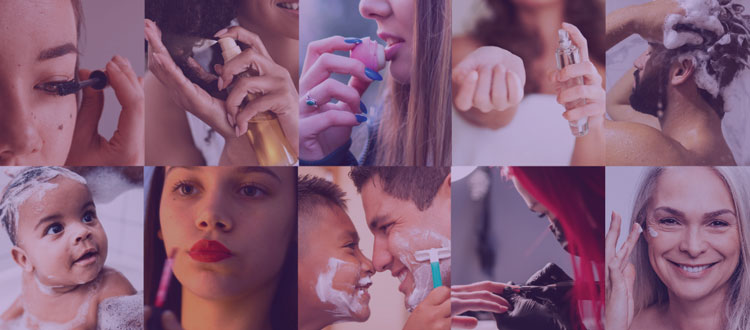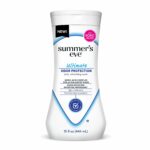Antiquated Law Allows Toxic Chemicals in Cosmetics and Puts Health At Risk
 Jamie McConnell Deputy Director |
Before I got into this line of work I assumed, like most of us do, that any product I buy in the store in the United States is safe. Surely, I told myself, the government wouldn’t allow harmful products on the shelves, right? Wrong.
The law that currently oversees cosmetics and personal care products is more than 80 years old and is under 3 pages long. There are currently around 10,000 ingredients used in cosmetics. Yet, the 84 billion dollar cosmetic and personal care industry is not required to meet any sort of safety standard for ingredients. In Europe, over 1200 ingredients are banned from cosmetics—we can do better in the US.
As a result of this antiquated law, cosmetics, personal care products (including intimate care products like douches, wipes, powders), and professional salon products can contain ingredients linked to cancer, infertility, birth defects, neurological disorders and more. And, what’s more, corporations are allowed to keep ingredients used in fragrance a secret (check out the label of your favorite cosmetic/personal care product—chances are you’ll just see “fragrance” listed, but none of the chemicals that are actually used in the fragrance!).
And while we are all impacted by the use of harmful chemicals in these products, studies show women and people of color bear the brunt of toxic exposure.
- Black and Latinx hairdressers were found to have higher levels of phthalates in their bodies compared to people who work in offices.
- A recent study found that women who douche two or more times a month or used “feminine” powder once a month had higher levels of VOCs in their bodies. Black women in the study reported douching more, potentially putting them more at risk for exposure. Another study found that douching was associated with higher levels of the toxic chemical phthalates.
- A report published by the Silent Spring Institute found that hair products marketed to Black women contained a number of hazardous ingredients. The researchers tested 18 products including anti-frizz treatments, hot oil treatments, leave-in conditioners, hair relaxers, root stimulators and hair lotions and found a total of 45 endocrine disruptors in the products.
- Another study found that women of color use more beauty products and are disproportionately exposed to harmful chemicals than white women.
- An analysis by the Environmental Working Group found that less than 25% of products marketed to Black women received a “low” score in the Skin Deep Database, a database that ranks the safety of cosmetic and personal care products.
- Another study found a positive correlation between permanent hair dye and breast cancer— particularly among Black women. The study also found links between chemical hair straightening products and breast cancer.
Solutions for Safer Cosmetics
To address the use of harmful chemicals in personal care/cosmetics, four new bills have been introduced in Congress.
- Toxic Free Beauty Act (HR 5537): Bans 11 of the most toxic chemicals on the planet from beauty and personal care products sold in the U.S., including mercury; 4 types of formaldehyde (plus Quaternium-15, Paraformaldehyde, Methylene Glycol); m-phenylenediamine and o-phenylenediamine; Diethylhexyl phthalate; Dibutyl phthalate; Isobutylparaben and Isopropylparaben and the entire class of perfluoroalkyl and polyfluoroalkyl substances (PFAS).
- Cosmetic Fragrance and Flavor Ingredient Right to Know Act (HR 5538): Requires disclosure of toxic fragrance and flavor chemicals and allergens in our personal care products
- Cosmetic Safety for Communities of Color and Professional Salon Workers Act (HR 5540): Creates cosmetic safety protections for women of color and professional hair, nail and beauty salon workers
- The Cosmetic Supply Chain Transparency Act (H.R. 5539): Forces supply chain transparency so that cosmetic companies can get the information they need from upstream suppliers to be able to make safer products.
These bills won’t pass unless we raise our voice. Please take action TODAY and tell your congressional representative to support these importance pieces of legislation. No matter our income level, the color of our skin, or where we live, we all deserve access to safe products. Tell Congress to act today!






